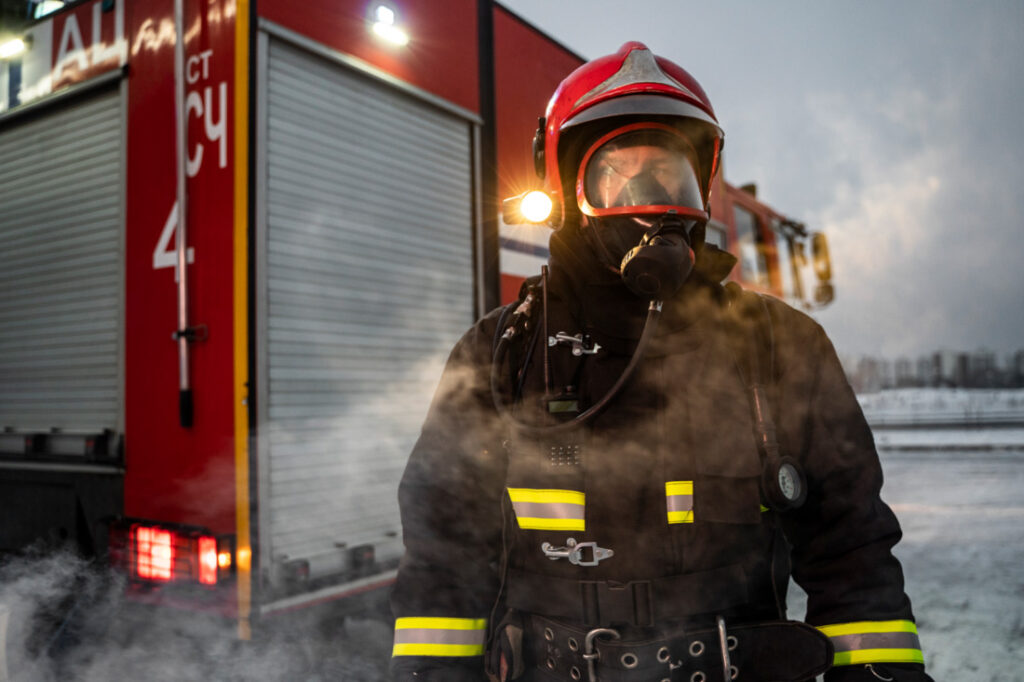First responders, including police officers, firefighters, and emergency medical technicians (EMTs), are on the front lines of crisis and disaster, dedicating their lives to serving and protecting communities. These heroes are often the first on the scene in emergency situations, witnessing human suffering, life-threatening incidents, and the aftermath of tragic events firsthand.
When you choose to become a first responder, no one fully prepares you for the emotional and psychological weight of the job. The rigorous training covers procedures and techniques, but it doesn’t encompass the multitude of intense and often harrowing experiences you will face throughout your career.
While their physical bravery is undeniable, the mental and emotional toll these experiences take on first responders is a growing concern that warrants attention and action.
In this blog, we explore how mental health affects first responders and the importance of providing them with the support they need to heal and continue their vital work.

The Psychological Toll on First Responders
First responders are exposed to a range of traumatic events that can lead to serious mental health challenges. These include, but are not limited to, critical incidents such as mass shootings, natural disasters, fatal car accidents, and scenes of domestic violence. Such exposure increases the risk of developing mental health conditions like Post-Traumatic Stress Disorder (PTSD), depression, anxiety, and substance use disorders.
PTSD, in particular, is a significant concern among first responders. The disorder can manifest through nightmares, flashbacks, severe anxiety, and uncontrollable thoughts about a traumatic event. For first responders, the repetitive exposure to trauma can exacerbate these symptoms, affecting their ability to function both professionally and personally.
Depression and anxiety are also prevalent, often resulting from the high-stress nature of the job and the emotional strain of dealing with loss and suffering. The pressure to remain composed and professional, coupled with irregular working hours and the need to make split-second decisions, can be overwhelming, leading to burnout and mental exhaustion.
Substance use disorder is another issue that disproportionately affects first responders, with some turning to alcohol or drugs as a coping mechanism for the stress and trauma they face on a daily basis. This not only affects their health and wellbeing but can also impair their judgment and response capabilities, potentially putting lives at risk.
The Stigma Surrounding Mental Health in First Responder Communities
Despite the growing awareness of these issues, there remains a significant stigma associated with mental health in the first responder community. Many fear that seeking help will be seen as a sign of weakness or could jeopardize their careers. This culture of silence can prevent first responders from accessing the support they need, leading to worsening mental health conditions and, in the worst cases, suicide.
The Path Forward: Support and Solutions
Addressing the mental health crisis among first responders requires a multi-faceted approach. It begins with breaking the stigma surrounding mental health in these professions. Departments and agencies must create an environment where seeking help is encouraged and supported. This includes providing access to mental health services, such as counseling and therapy, and ensuring confidentiality and job security for those who come forward.
Peer support programs can also play a crucial role in providing comfort and understanding, as they allow first responders to connect with colleagues who have faced similar experiences. These programs can offer a safe space for individuals to share their feelings and challenges without judgment.
Training and education are essential components in equipping first responders with the tools they need to manage stress and trauma. Providing training on coping mechanisms, mindfulness, and stress management techniques is crucial in supporting individuals to better navigate the challenges of their work environment. By equipping them with these valuable tools, we empower them to proactively address stressors and safeguard their mental well-being. This investment in their mental health can lead to increased resilience, productivity, and overall job satisfaction.
Finally, policymakers must prioritize funding and resources for mental health programs that specifically target first responders. This includes research into the unique challenges they face and the development of specialized treatments and support systems.
First responders play a critical role in our society, often putting their lives on the line to save others. However, the mental and emotional toll of their work is a pressing issue that requires immediate attention. By acknowledging the impact of mental health on first responders and taking steps to provide them with the support they need, we can help ensure they remain healthy and resilient, ready to face the challenges of their demanding professions.
Contact Olympia Center for TMS and Psychiatry if you or a first responder you know is struggling with mental health.
Olympia Center for TMS and Psychiatry is dedicated to providing the care and support you need, so please don’t hesitate to reach out for professional help.
Together, we can ensure our first responders receive the care and support they deserve. Let’s make mental health a priority for those who bravely protect and serve us.
 Depression Self Care That Complements TMS Treatment
Depression Self Care That Complements TMS Treatment